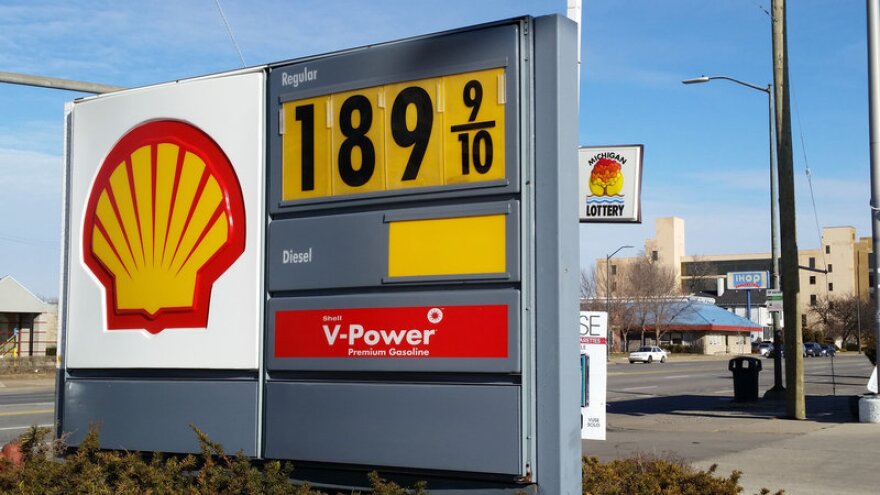In June 2014, the price of a barrel of oil was roughly $115 per barrel, leading to gas prices that were well over $3 per gallon.
Not anymore.
Prices of oil have crashed in the last six months, starting 2015 with the price of crude oil at a five-year low as the current price hovers around $45 per barrel, a 60 percent slash in value.
For consumers, this is a good thing, leading to cheaper gas and diesel and putting more money in Americans' pockets. But for some, like sectors of the oil industry and petro-states that rely on high oil prices to balance their budgets, the drop in value has wreaked havoc.
Experts say the decline is thanks to a supply and demand force that has been tipped by U.S. shale oil producers and OPEC nations like Saudi Arabia continuing current production levels while newer, greener cars and technology and a lack of demand created a surplus of oil that’s flooded the market and has driven prices down.
While the U.S. is enjoying a stronger economy in recent months thanks in part to low oil prices, Europe continues to be plagued by economic woes and oil-rich countries like Russia and Venezuela are scrambling to fund their budgets.
Marshall Watson, the department head of Texas Tech's Bob L. Herd Department of Petroleum Engineering, said the U.S. economy's recent upturn can be credited to the oil and gas industry's billions of dollars and thousands of jobs, despite the industry's current suffering.
"If you look at the employment gain in the U.S., it’s all in the oil and gas sector," Watson said. All the recovery since 2008 has really been on the backs of oil and gas companies."
The oil and gas companies that boosted the economy were spurred by a cause-and-effect chain of previously high oil prices and a revolution in technology like hydraulic fracturing, or fracking, leading to a shale boom that eventually made America the world's largest oil producer. But as the flood of shale oil flooded the market and competitors like OPEC's Saudi Arabia refused to cut their production, prices dipped - and stayed.
Marshall says as OPEC continues its refusal to cut output - they're safeguarded by billions in cash reserves - oil could continue its descent to a startling low.
"[They were asked] ‘Why aren’t you curtailing oil production to get prices up?’ And their comment was, ‘We have no plans to curtail oil production, we’re going to produce at our capacity, and we’re totally willing and able to do that to continue all the way down to $20 a barrel.’ So that kind of sets the benchmark of what truly is the floor, and I think it is $20 a barrel," Watson said. "So I think we could easily see prices drop another $20 a barrel."
Michael Noel, an economist and associate professor at Texas Tech, said while crude prices dropping that low is entirely possible, he doesn't see that price lasting for long.
"How far will crude oil drop? It’s not clear," Noel said. "What is clear is that it’s going to drop, and as supply responds to that, then we’re going to get a rebound in crude oil prices. It’s anyone’s guess how far the price will fall, because the price essentially is in free fall right now. $20 a barrel oil is absolutely possible, but it’s much less likely that if it gets down to that level it will stay there. It will be more of a transition."
Watson said $20 per barrel would be "devastating" for some oil companies, but echoed Noel about a transition price into the next upswing in the industry.
"My guess is as good as anybody’s, [but] I don’t think this is going to last a really long time, as in maybe two years," Watson said. "That seems like a long time, but the last bust lasted 20 years."
But Noel said demand - while faint - will continue.
"I don’t think we need a unique situation to occur," Noel said. "I think that as the general increase in demand for oil continues to occur, we’re going to slow down right now, I think we’re going to have many of the same issues that we had before."
Watson said the bust shouldn't have been unexpected, especially in his industry.
"It’s just like the laws of physics – the more it booms, the more it busts. So I think people were expecting [it], they knew that a bust was going to happen. I mean, it’s the nature of this business. Just when, and how much."




